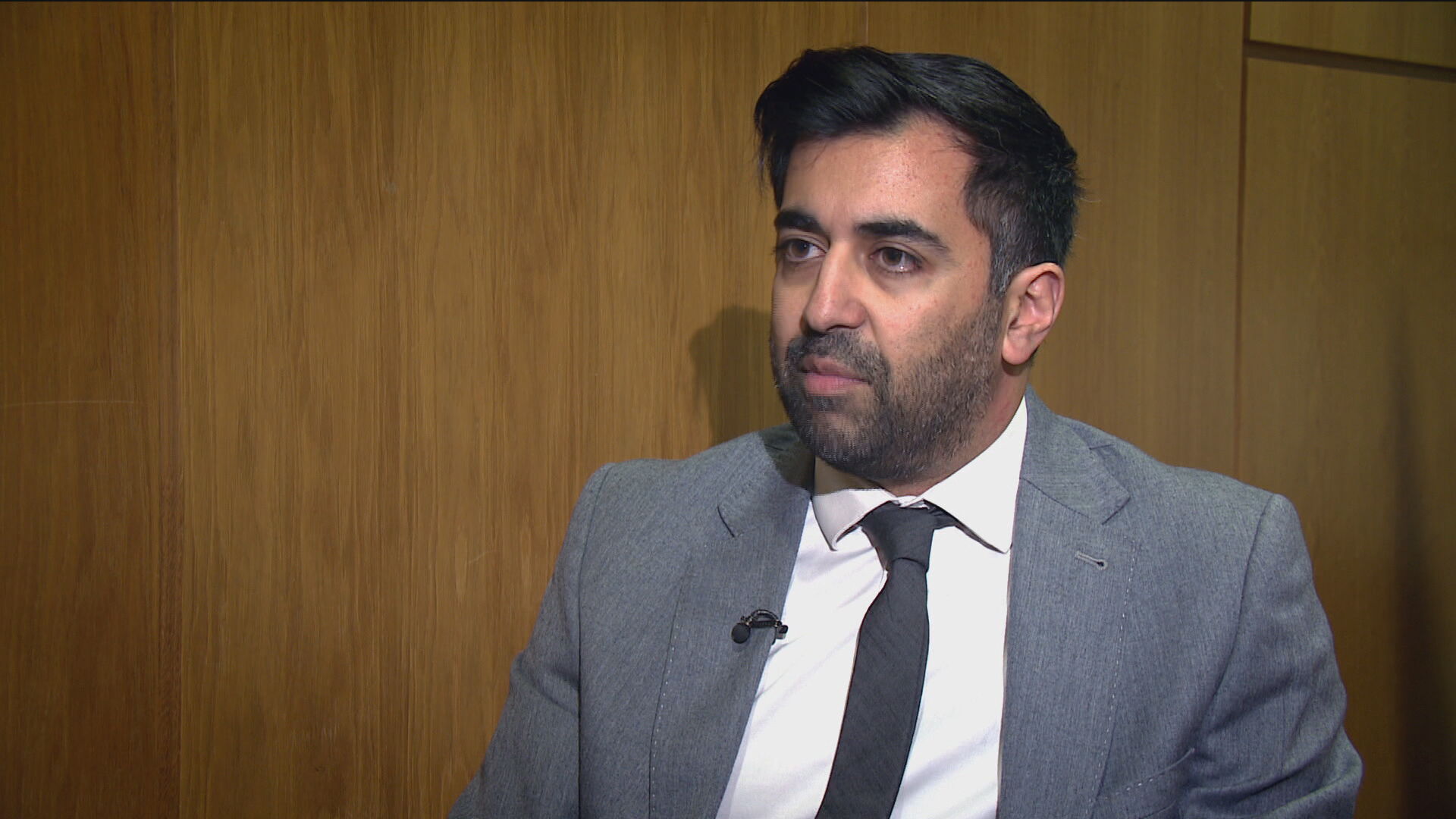Police Scotland is facing scrutiny over its handling of non-crime hate incidents (NCHIs) involving high-profile individuals, sparking accusations of potential political bias.
Specifically, concerns have been raised regarding the decision not to record NCHIs for First Minister Humza Yousaf and author JK Rowling, despite complaints against them.
The controversy stems from instances where both Yousaf and Rowling were accused of engaging in behavior that some considered stirring up hatred or breaching hate incident guidelines. In Yousaf’s case, complaints arose from his 2020 speech addressing racial injustice, in which he criticized the lack of diversity in Scottish public roles.
Humza Yousaf (Credits: STV News)
Although numerous complaints were lodged against him, Police Scotland confirmed that his actions did not meet the criminal threshold for a hate incident and, therefore, did not record them as such.
Similarly, Rowling faced accusations of misgendering prominent transgender figures in a tweet. However, police investigations concluded that her actions did not warrant an NCHI either.
These decisions have raised questions about the consistency and fairness of Police Scotland’s approach to handling such incidents, particularly compared to other cases where NCHIs were recorded.
Scottish Tory MSP Murdo Fraser has been vocal about his dissatisfaction with the handling of NCHIs, especially after discovering that he was recorded as being involved in a hate incident for a tweet comparing cats to non-binary people.
Fraser has threatened legal action against the police. He has demanded transparency regarding the criteria used to determine whether to record NCHIs and why some cases are treated differently than others.
Fraser’s concerns extend to potential political bias within Police Scotland’s decision-making processes. He has questioned whether the force’s policy on recording NCHIs has changed, particularly for high-profile individuals, and if so, who made that decision.
Additionally, Fraser seeks clarification on the repercussions for individuals who have already had NCHIs recorded if there has been a change in guidelines.
Humza Yousaf During a Speech (Credits: CNBC)
The discrepancy in handling NCHIs has sparked broader discussions about the role of perception and victim impact in defining hate incidents. Police Scotland’s guidance emphasizes that the perception of the victim or any other person is crucial in determining whether an incident qualifies as a hate incident.
However, the recent decisions regarding Yousaf and Rowling’s cases have raised doubts about applying this guidance in practice. Fraser’s insistence on transparency and accountability from Police Scotland reflects broader concerns about the integrity of hate incident reporting and the potential influence of political considerations in law enforcement decisions.
The public and political figures are calling for clear answers regarding the criteria used to determine NCHIs, ensuring consistency and fairness in addressing hate-related complaints across all levels of society.
